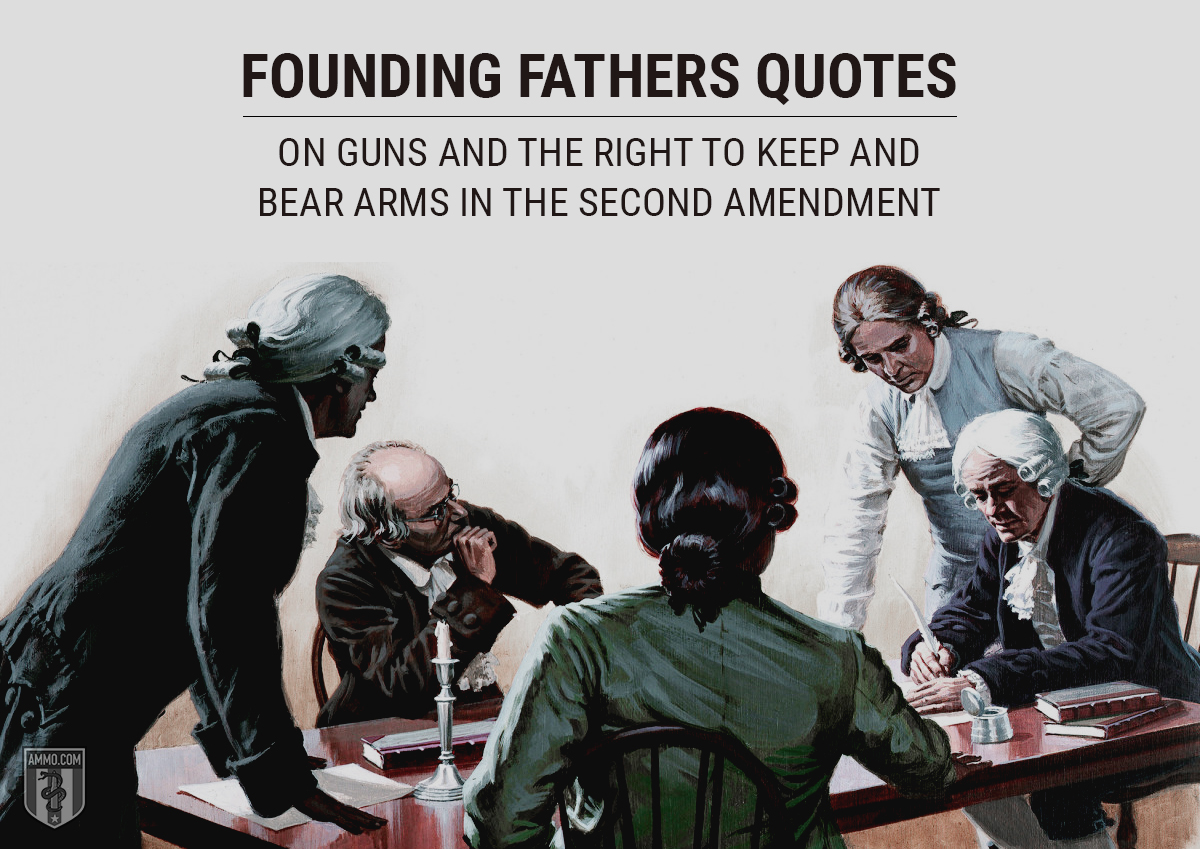
You're free to republish or share any of our articles (either in part or in full), which are licensed under a Creative Commons Attribution 4.0 International License. Our only requirement is that you give Ammo.com appropriate credit by linking to the original article. Spread the word; knowledge is power!

The Second Amendment is perhaps one of the most straightforward Amendments in the Bill of Rights. Yet, it remains one of the most controversial, mostly due to the clause regarding “a well regulated militia” – a topic we've written about before.
While the freedom of association clause in the First Amendment is one of the most eroded in the Constitution, the Second Amendment is perhaps the most under attack. Few would argue in favor of repealing the First Amendment or even ignoring it because it is politically inconvenient. However, this is precisely what the champions of gun control advocate for – either radical abridgements of the Second Amendment or its direct repeal. Fortunately, there are also well-funded organizations fighting these forces in the American political sphere, but it is a tough and constant battle.
It’s not there for hunters. The Founders were very clear: The Second Amendment exists for citizens to protect themselves against tyranny.
Curated by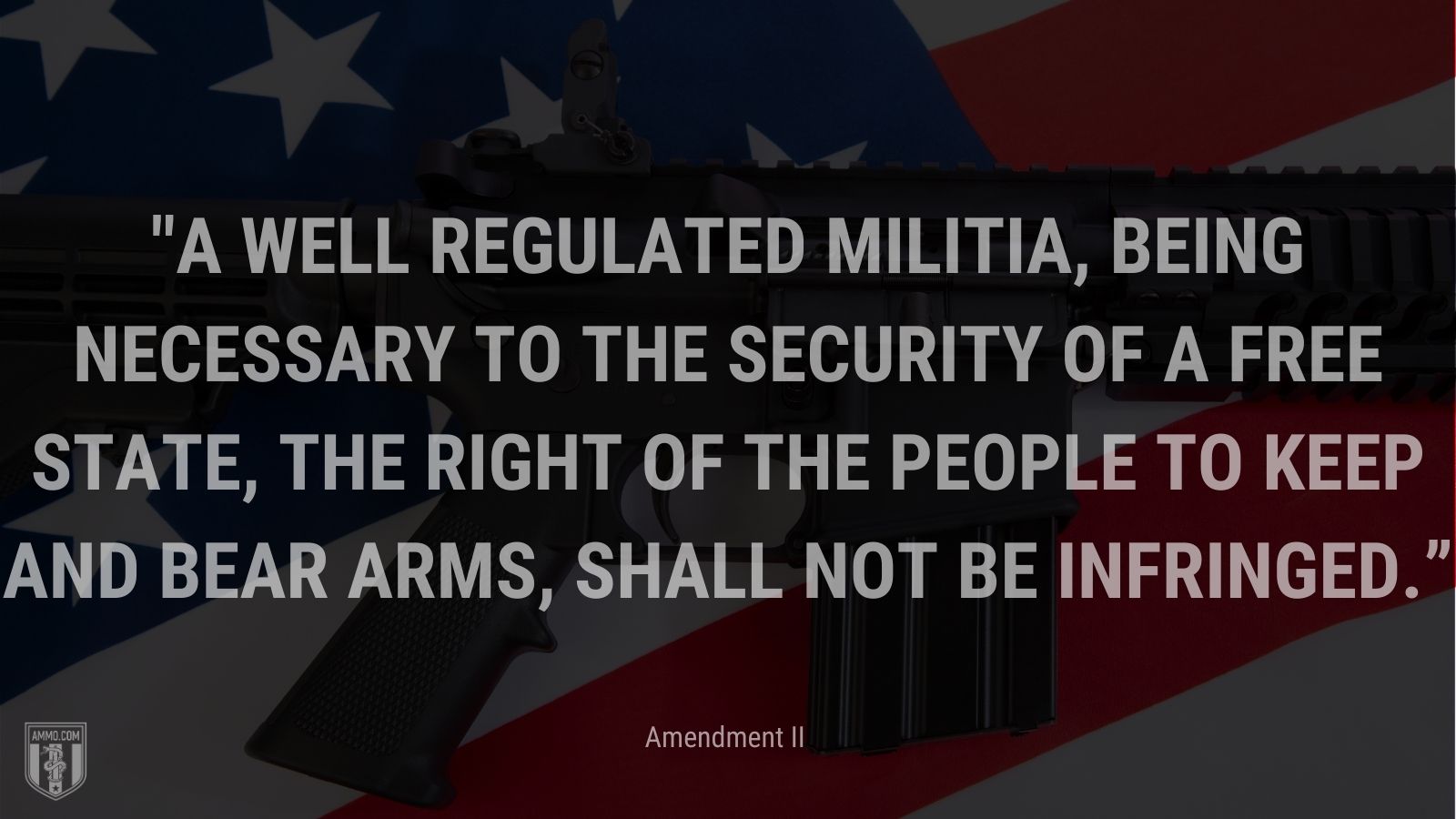
“A well regulated Militia, being necessary to the security of a free State, the right of the people to keep and bear Arms, shall not be infringed.”
Amendment II, The U.S. Constitution
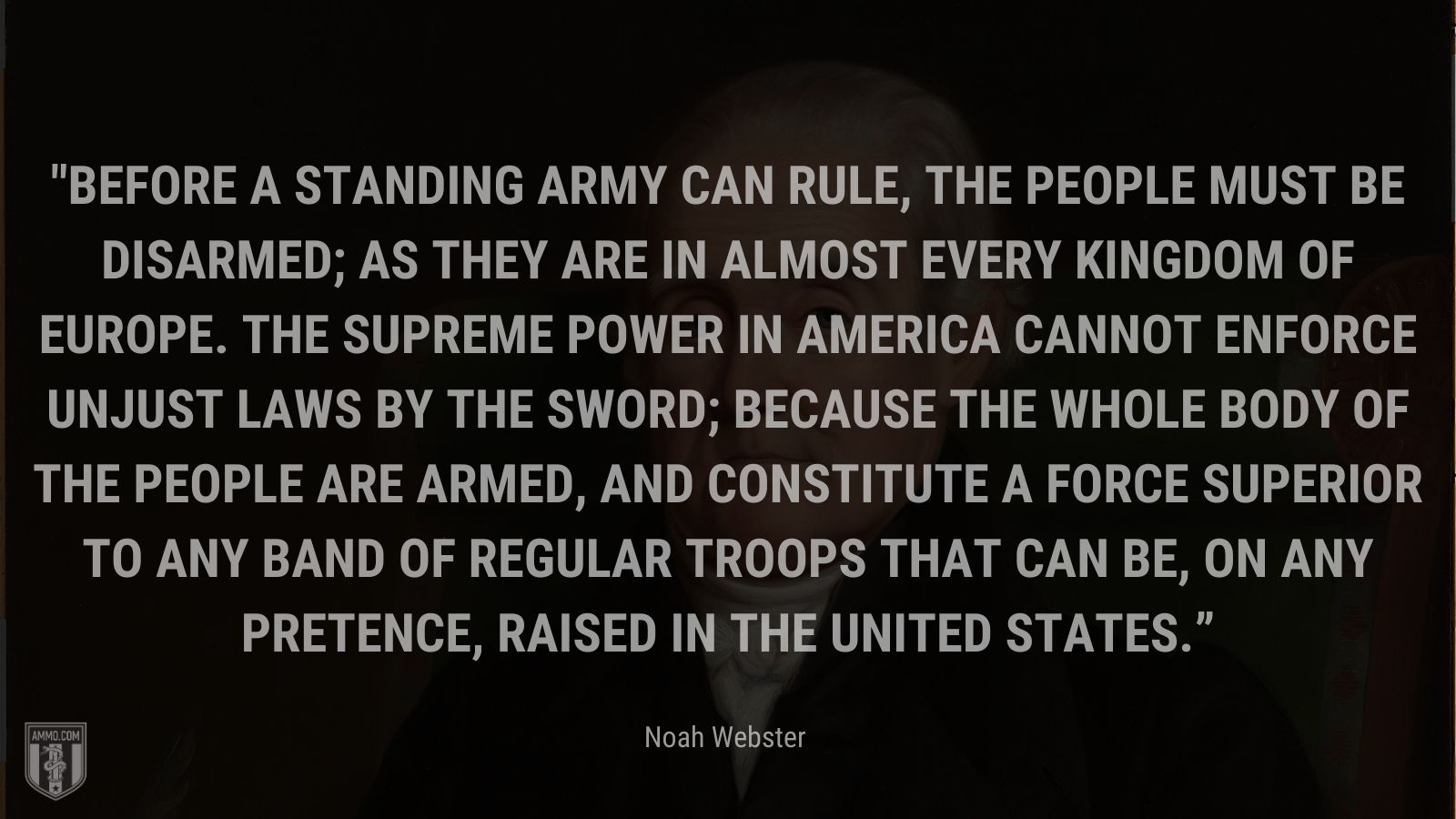
“Before a standing army can rule, the people must be disarmed; as they are in almost every kingdom of Europe. The supreme power in America cannot enforce unjust laws by the sword; because the whole body of the people are armed, and constitute a force superior to any band of regular troops that can be, on any pretence, raised in the United States.”
Noah Webster, An Examination of the Leading Principles of the Federal Constitution, 1787
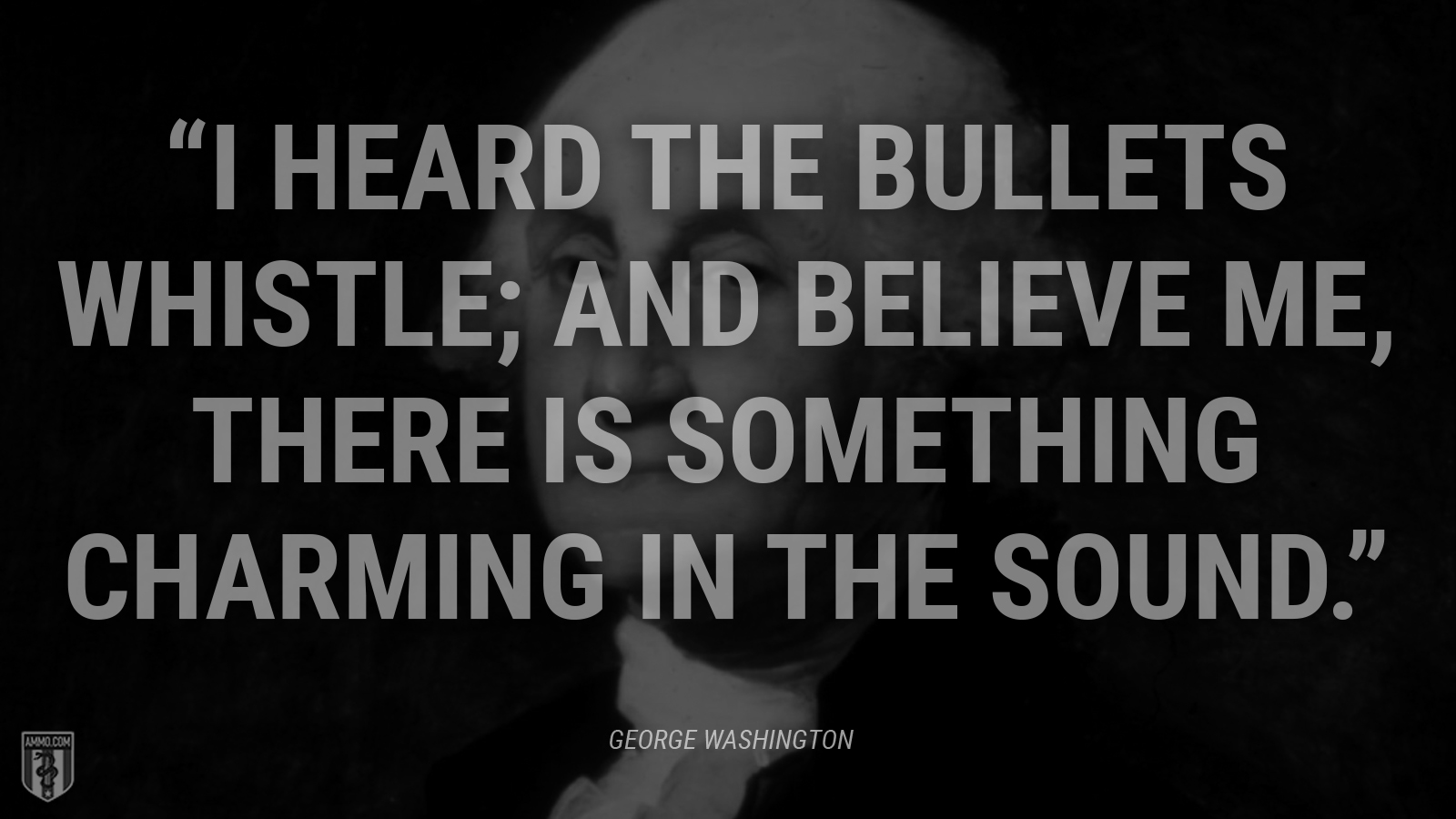
“I heard the bullets whistle; and believe me, there is something charming in the sound.”
George Washington
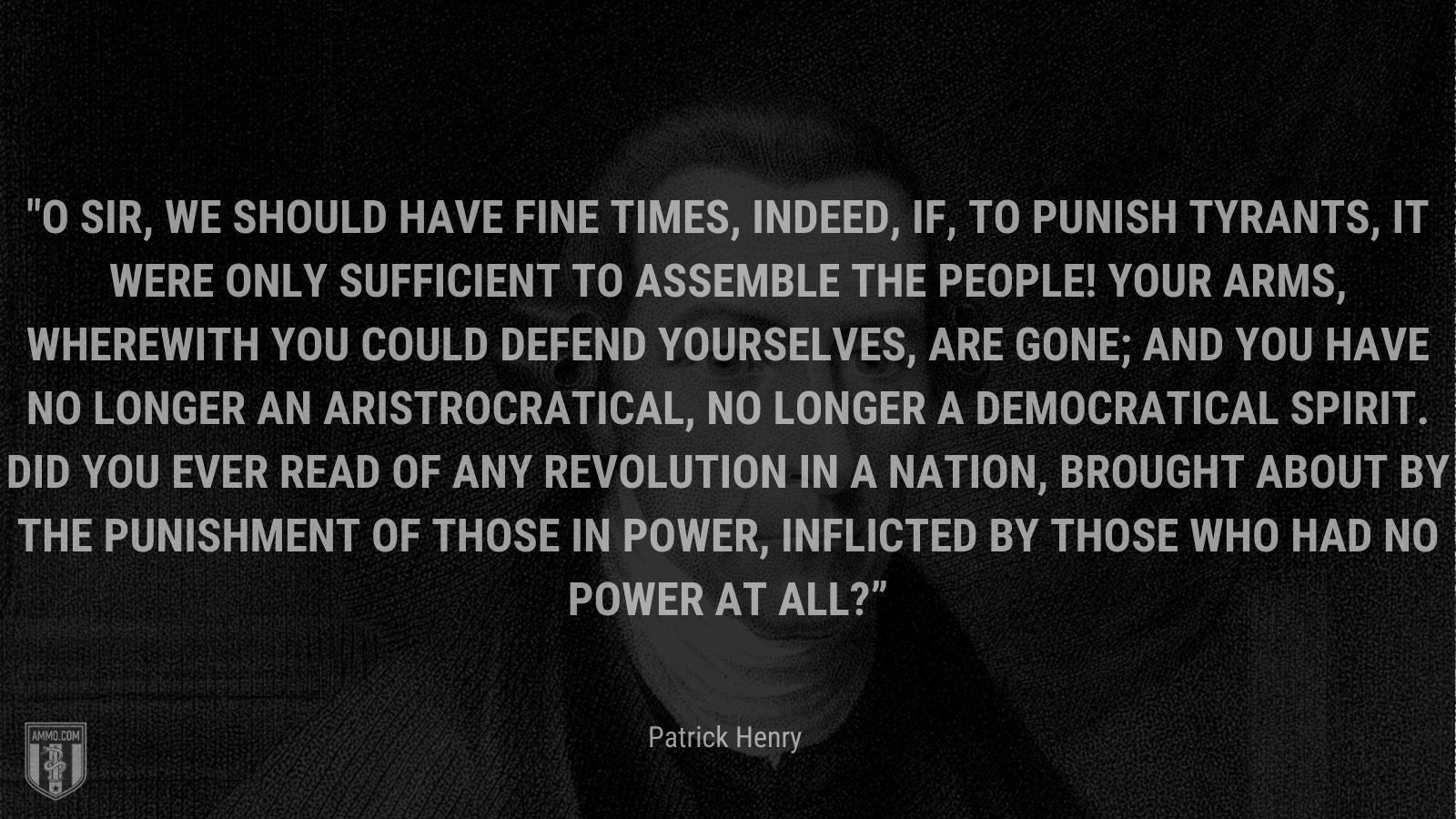
“O sir, we should have fine times, indeed, if, to punish tyrants, it were only sufficient to assemble the people! Your arms, wherewith you could defend yourselves, are gone; and you have no longer an aristrocratical, no longer a democratical spirit. Did you ever read of any revolution in a nation, brought about by the punishment of those in power, inflicted by those who had no power at all?”
Patrick Henry, Speech in the Virginia Ratifying Convention, June 5, 1788
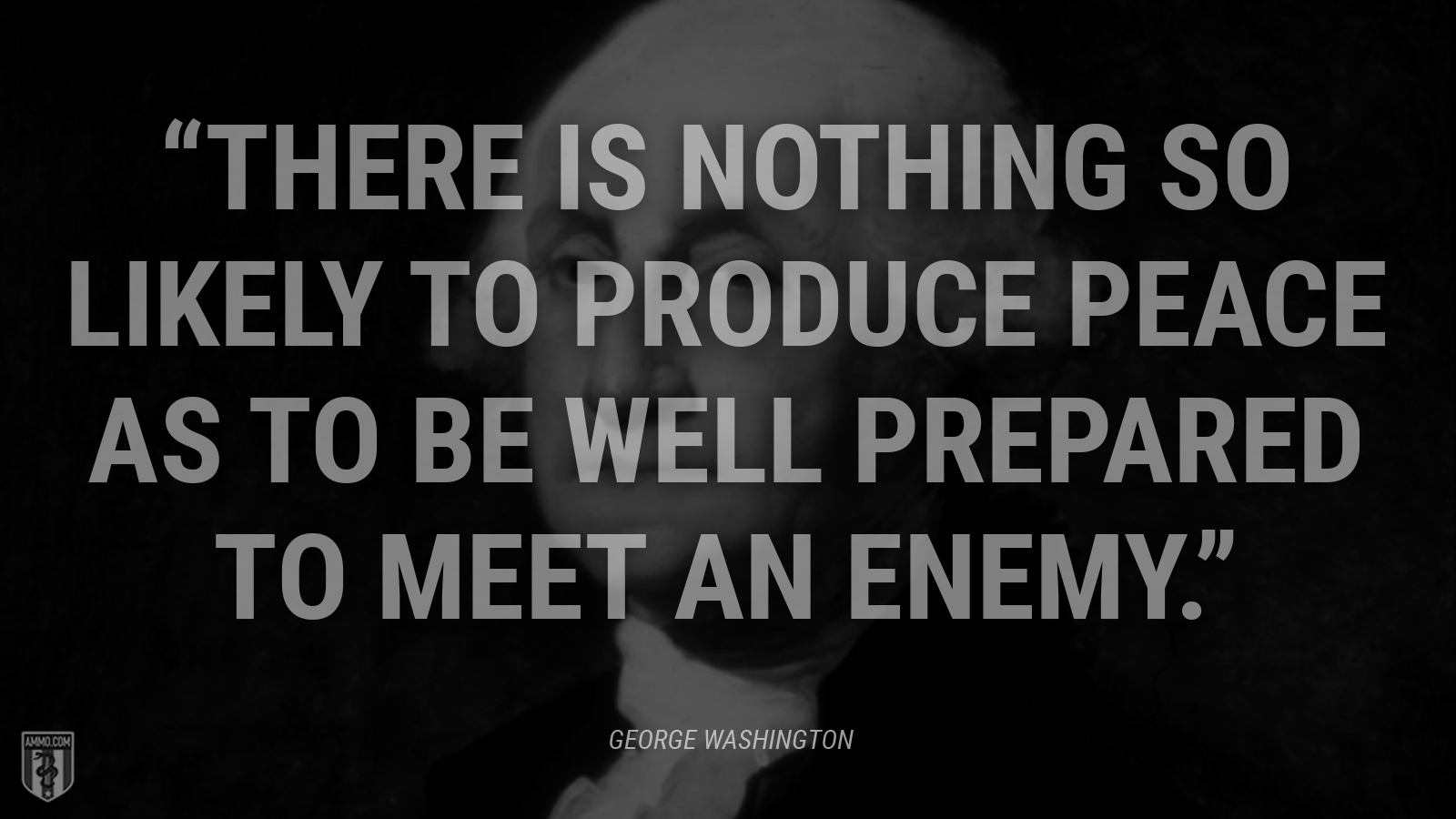
“There is nothing so likely to produce peace as to be well prepared to meet an enemy.”
George Washington
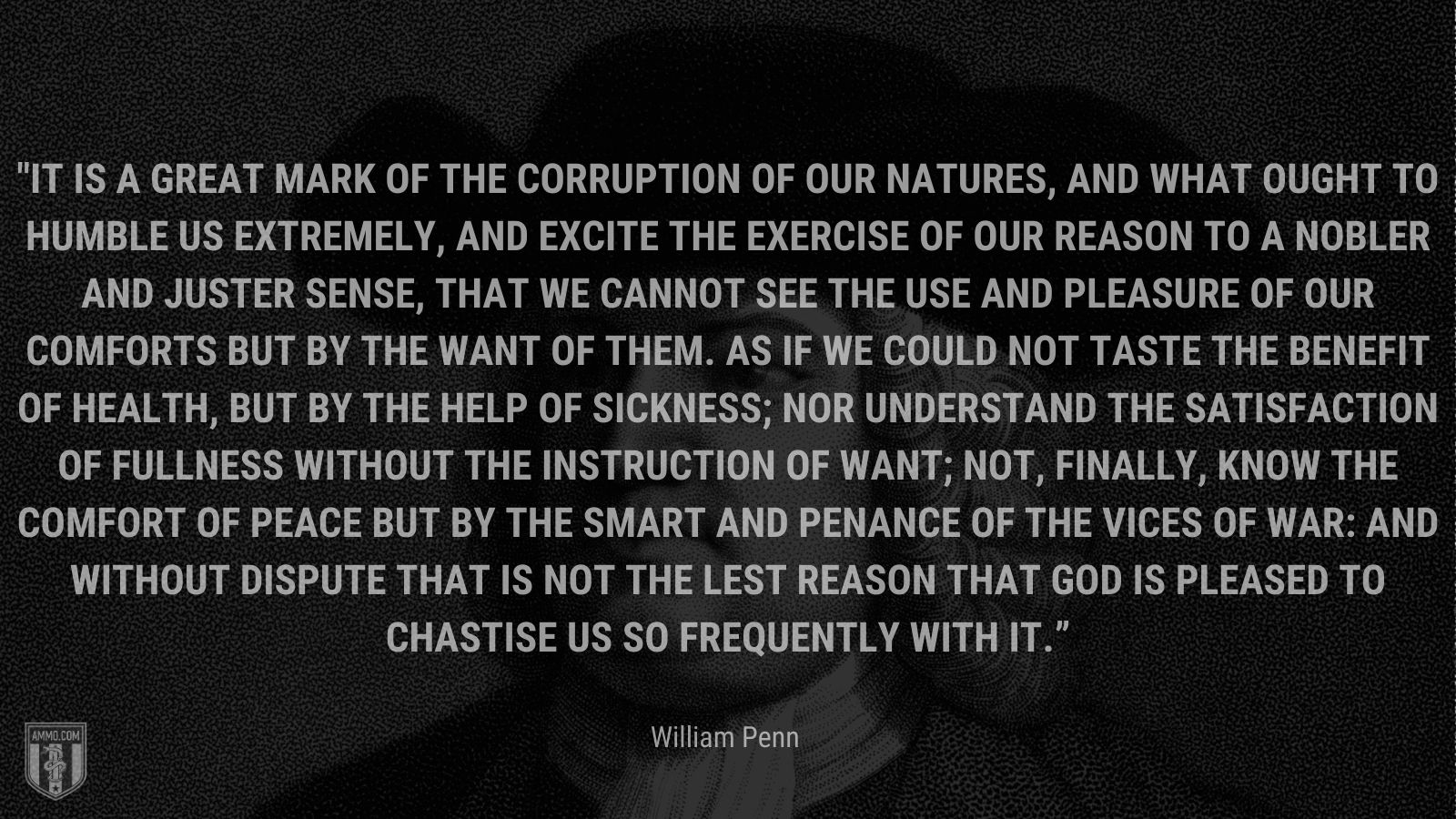
“It is a great mark of the corruption of our natures, and what ought to humble us extremely, and excite the exercise of our reason to a nobler and juster sense, that we cannot see the use and pleasure of our comforts but by the want of them. As if we could not taste the benefit of health, but by the help of sickness; nor understand the satisfaction of fullness without the instruction of want; not, finally, know the comfort of peace but by the smart and penance of the vices of war: And without dispute that is not the lest reason that God is pleased to chastise us so frequently with it.”
William Penn
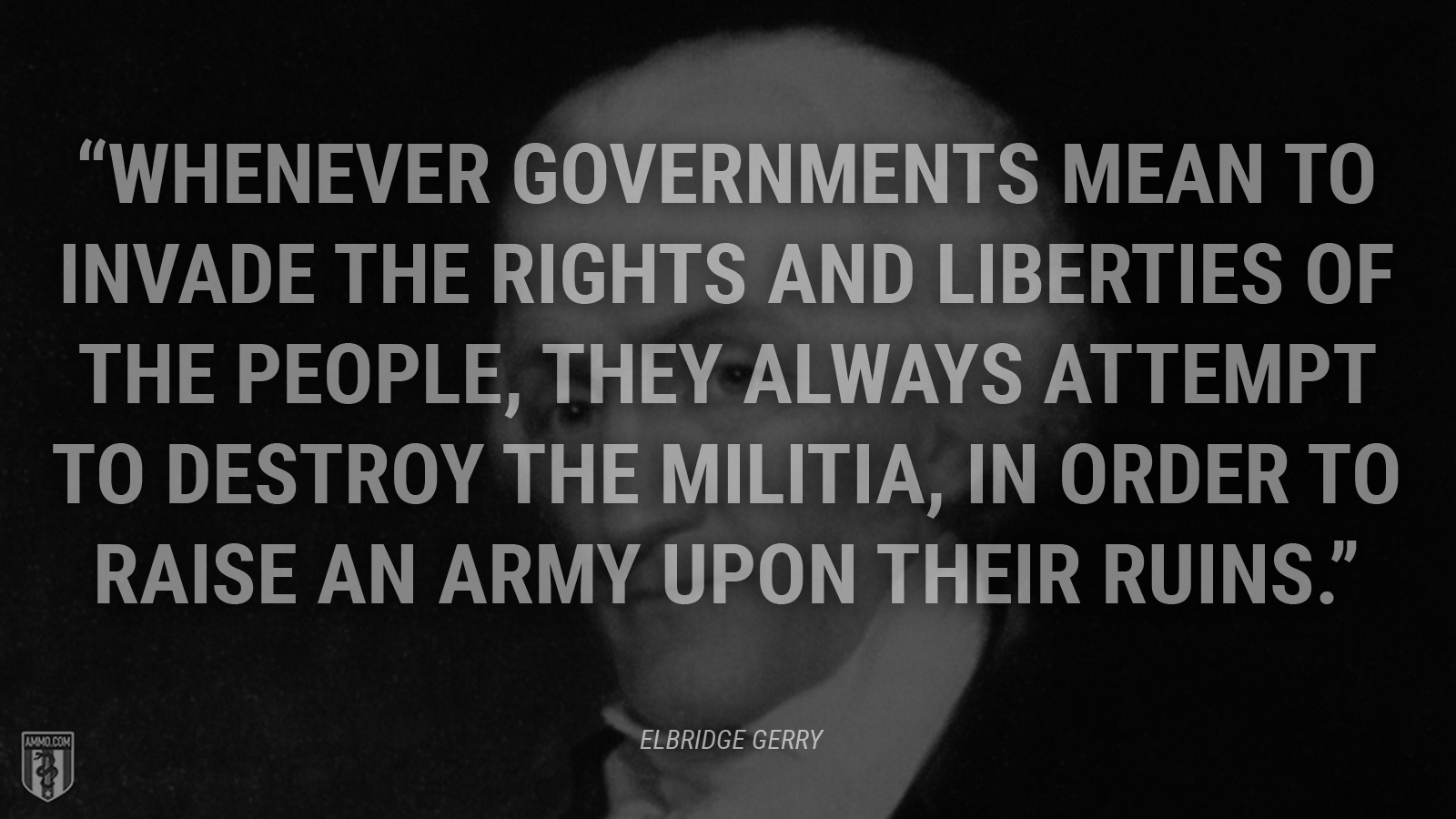
“Whenever governments mean to invade the rights and liberties of the people, they always attempt to destroy the militia, in order to raise an army upon their ruins.”
Rep. Elbridge Gerry of Massachusetts, Spoken during floor debate over the Second Amendment, Annals of Congress, August 17, 1789
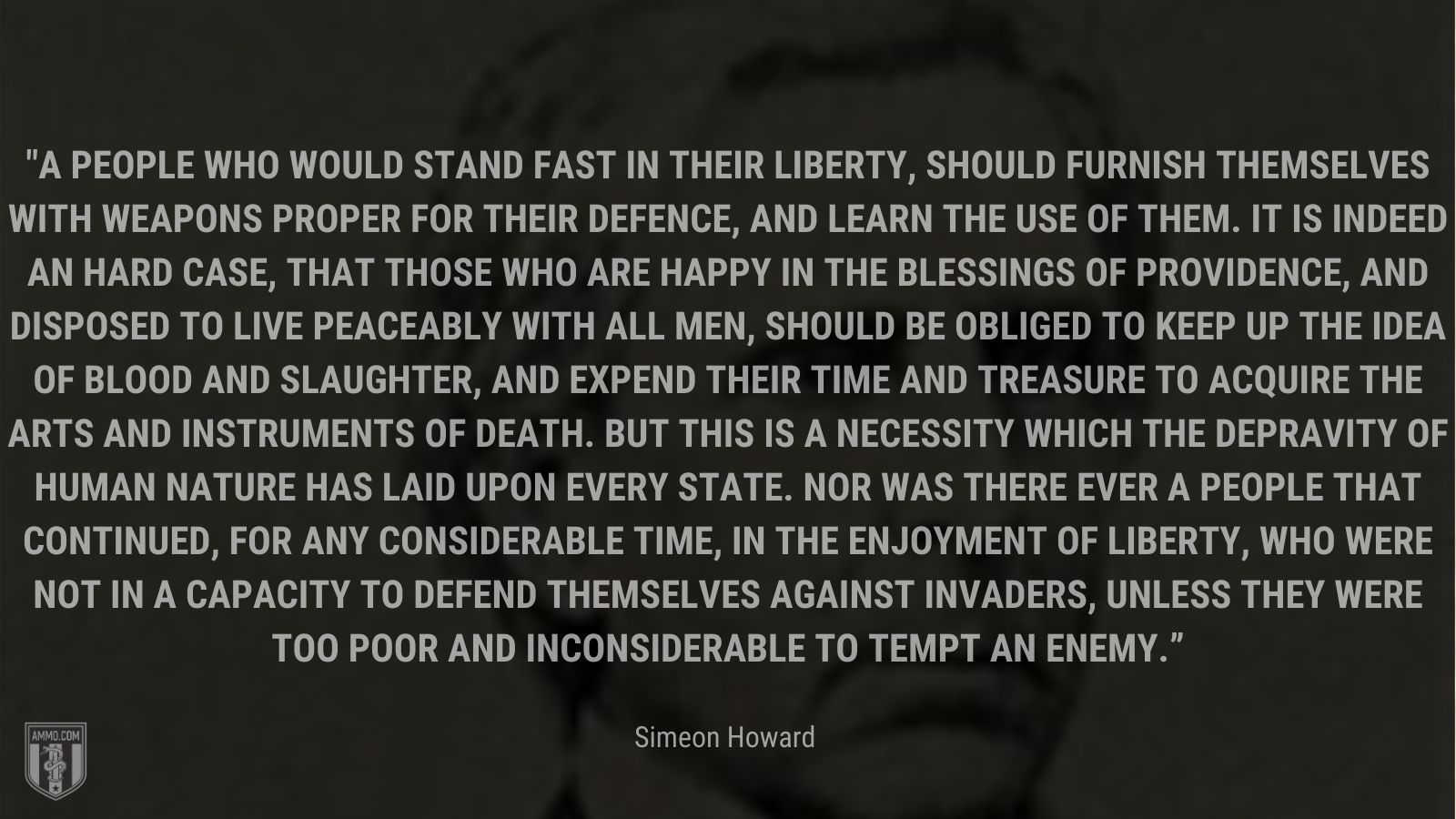 should be obliged to keep up the idea of blood and slaughter, and expend their time and treasure to acquire the arts and instruments of death. But this is a necessity which the depravity of human nature has laid upon every state. Nor was there ever a people that continued, for any considerable time, in the enjoyment of liberty, who were not in a capacity to defend themselves against invaders, unless they were too poor and inconsiderable to tempt an enemy.” - Simeon Howard" width="750" height="422" />
should be obliged to keep up the idea of blood and slaughter, and expend their time and treasure to acquire the arts and instruments of death. But this is a necessity which the depravity of human nature has laid upon every state. Nor was there ever a people that continued, for any considerable time, in the enjoyment of liberty, who were not in a capacity to defend themselves against invaders, unless they were too poor and inconsiderable to tempt an enemy.” - Simeon Howard" width="750" height="422" />
“A people who would stand fast in their liberty, should furnish themselves with weapons proper for their defence, and learn the use of them. It is indeed an hard case, that those who are happy in the blessings of providence, and disposed to live peaceably with all men, should be obliged to keep up the idea of blood and slaughter, and expend their time and treasure to acquire the arts and instruments of death. But this is a necessity which the depravity of human nature has laid upon every state. Nor was there ever a people that continued, for any considerable time, in the enjoyment of liberty, who were not in a capacity to defend themselves against invaders, unless they were too poor and inconsiderable to tempt an enemy.”
Simeon Howard to the Ancient and Honorable Artillery Company in Boston, June 7, 1773
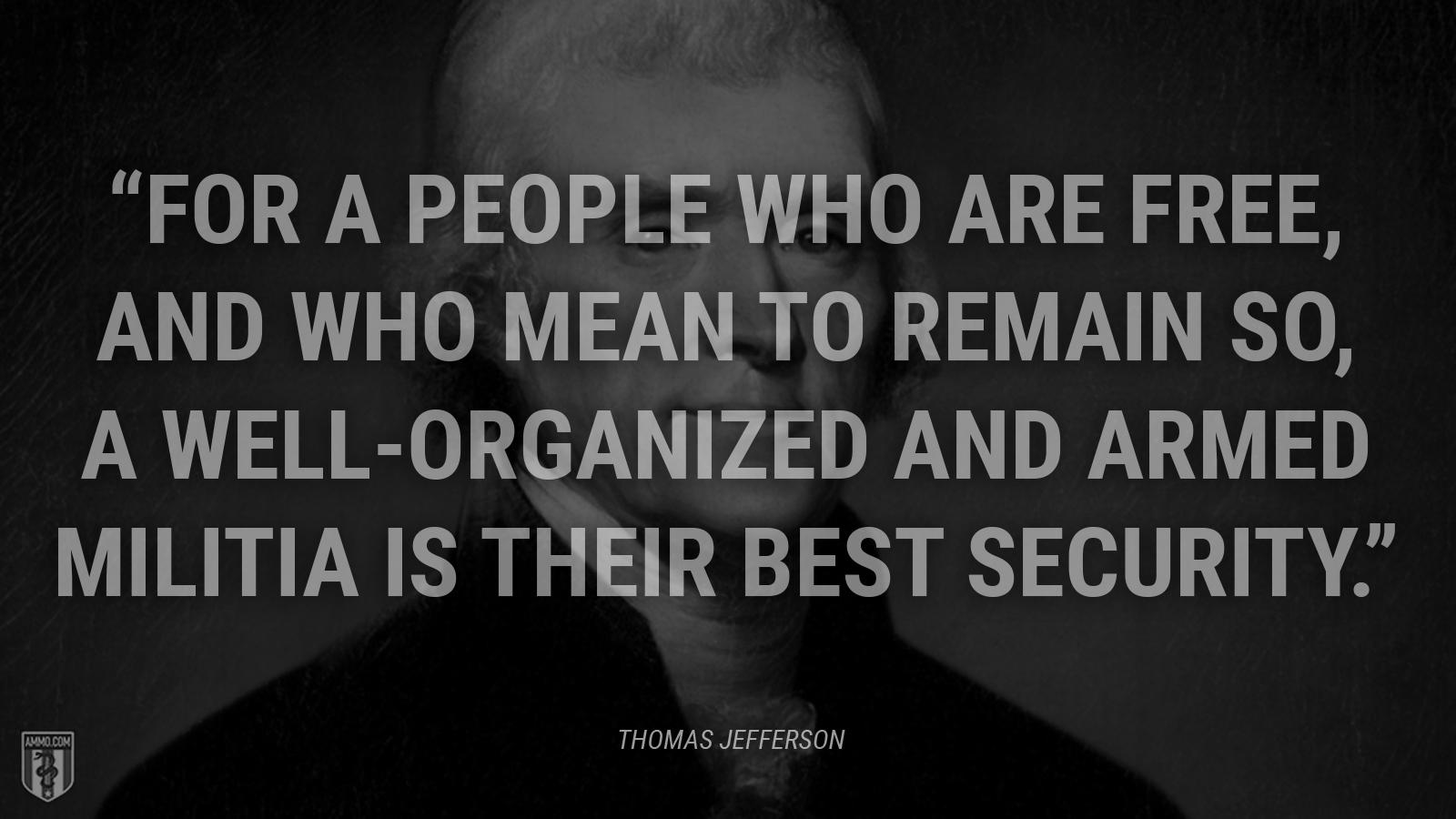
“For a people who are free, and who mean to remain so, a well-organized and armed militia is their best security.”
Thomas Jefferson, Eighth State of the Union Address, 1808
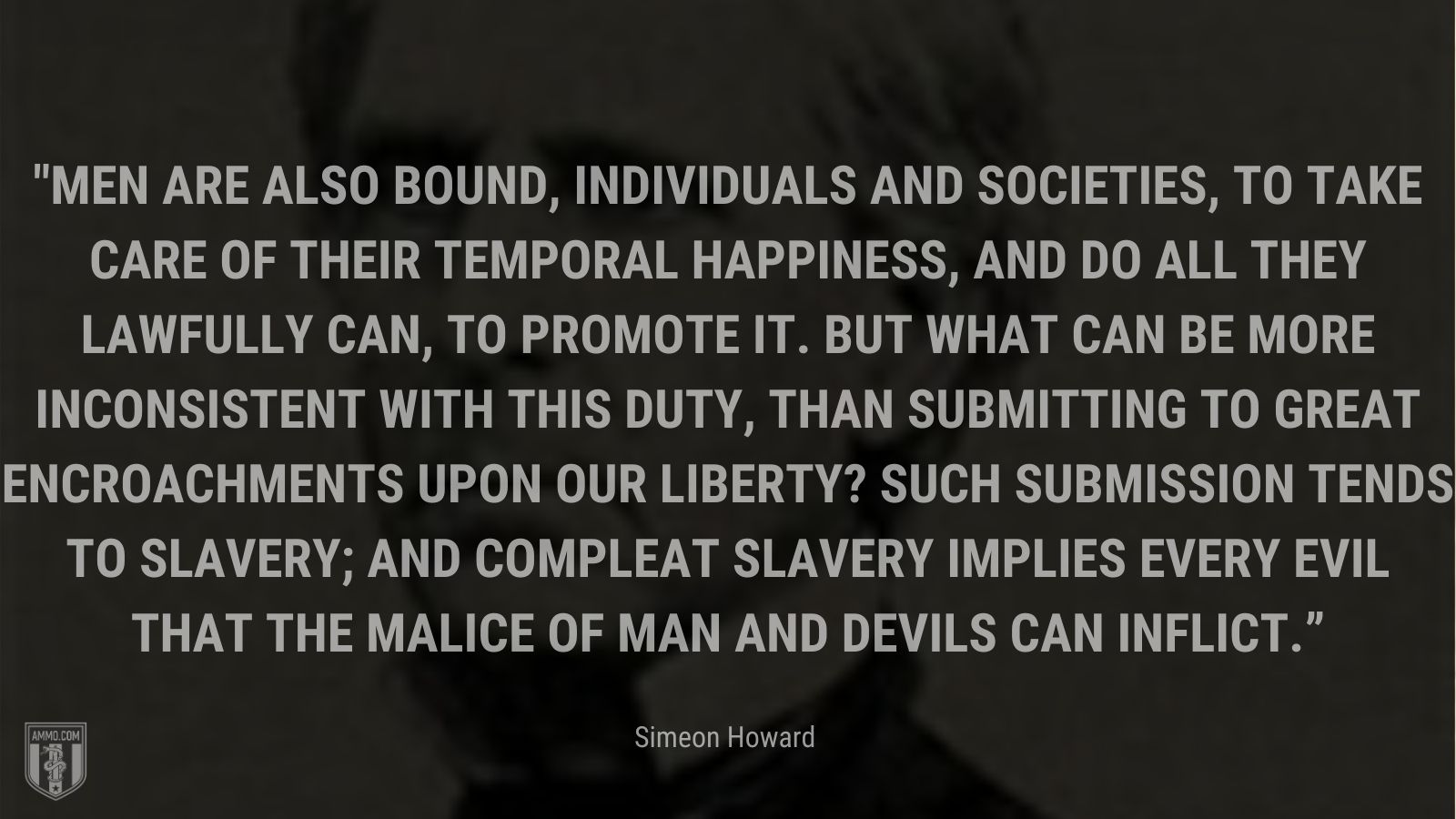
“Men are also bound, individuals and societies, to take care of their temporal happiness, and do all they lawfully can, to promote it. But what can be more inconsistent with this duty, than submitting to great encroachments upon our liberty? Such submission tends to slavery; and compleat slavery implies every evil that the malice of man and devils can inflict.”
Simeon Howard to the Ancient and Honorable Artillery Company in Boston, June 7, 1773
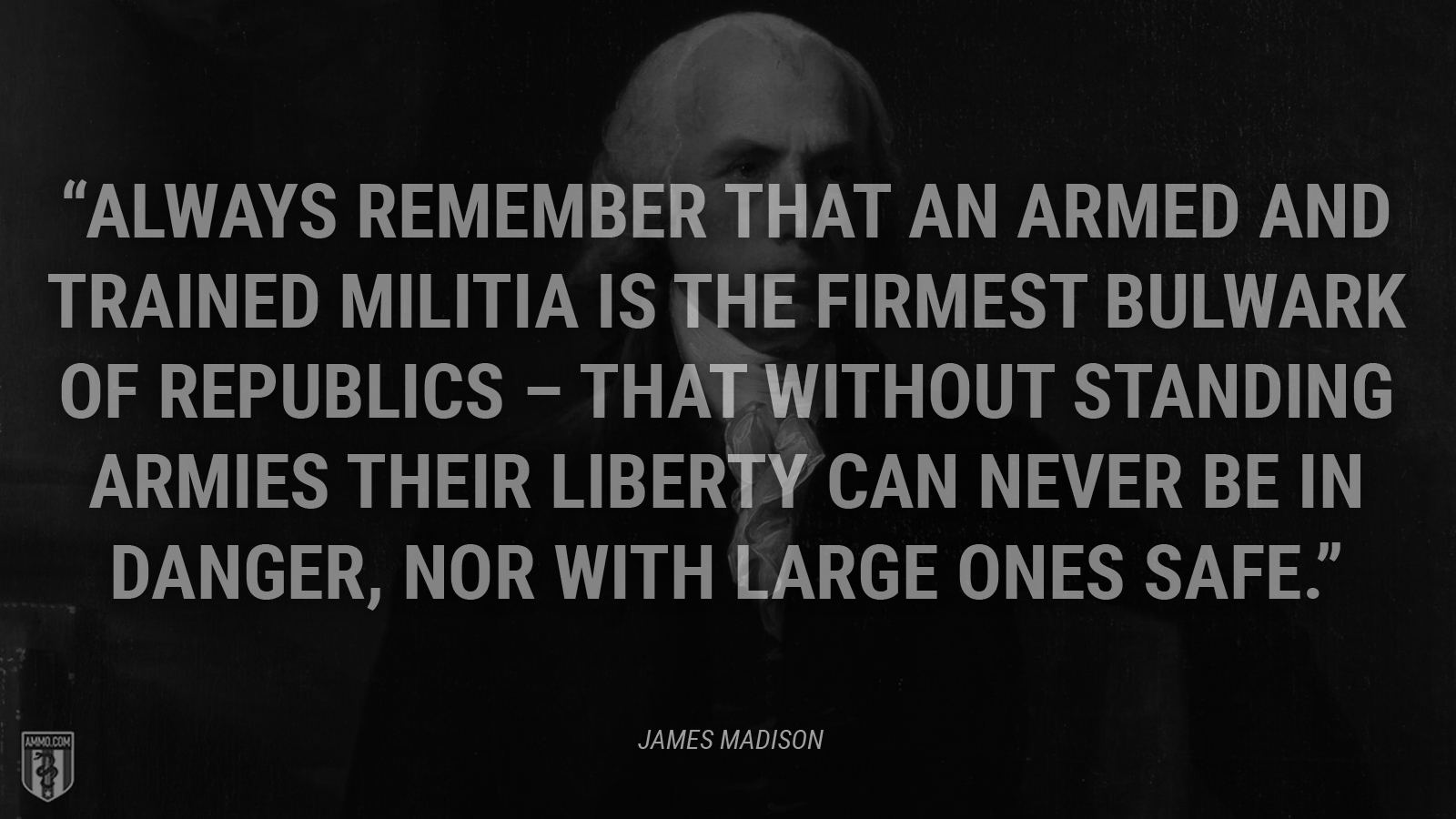
“Always remember that an armed and trained militia is the firmest bulwark of republics – that without standing armies their liberty can never be in danger, nor with large ones safe.”
James Madison, First Inaugural Address, March 4, 1809
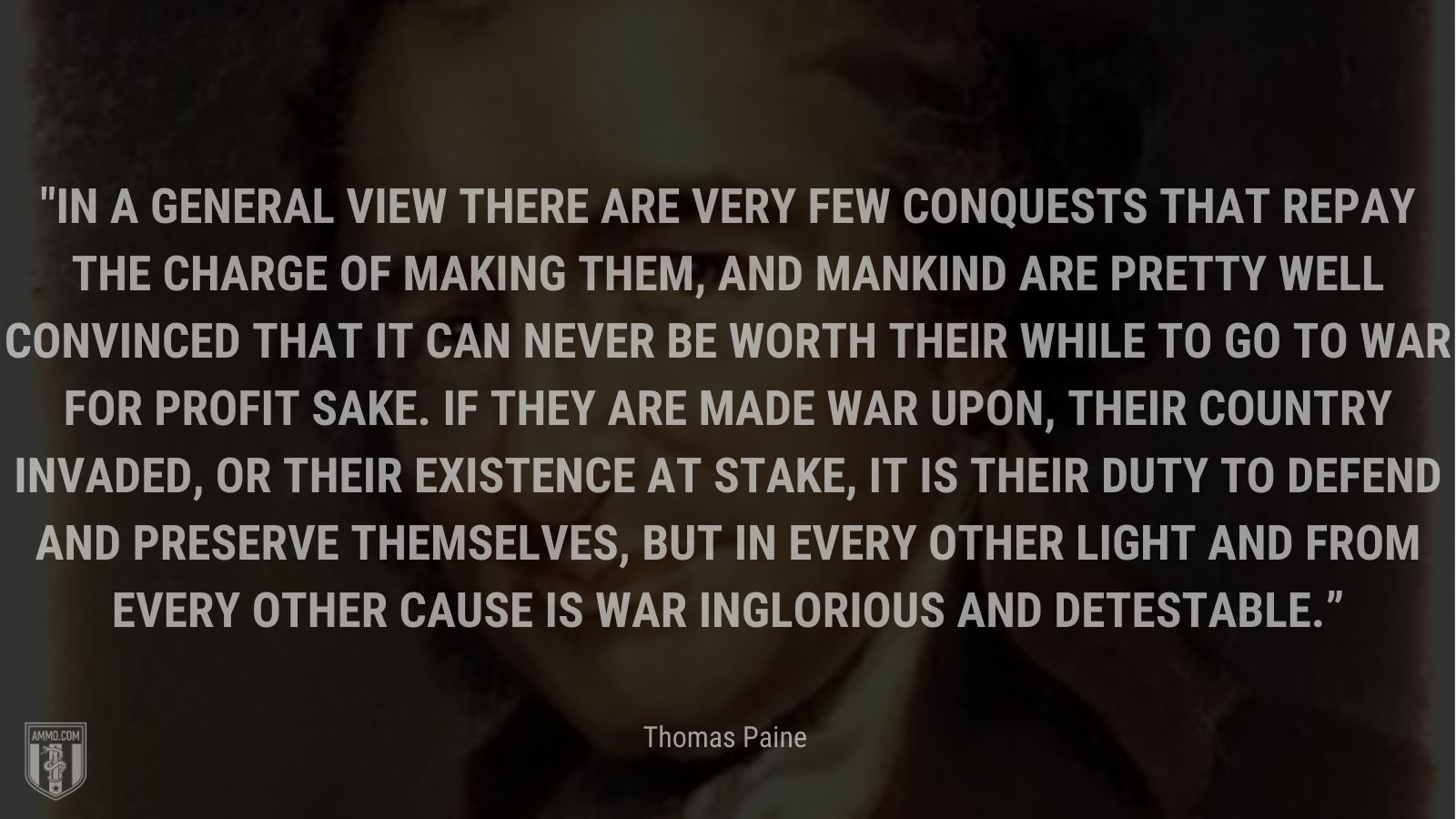
“In a general view there are very few conquests that repay the charge of making them, and mankind are pretty well convinced that it can never be worth their while to go to war for profit sake. If they are made war upon, their country invaded, or their existence at stake, it is their duty to defend and preserve themselves, but in every other light and from every other cause is war inglorious and detestable.”
Thomas Paine, The Crisis, 1778
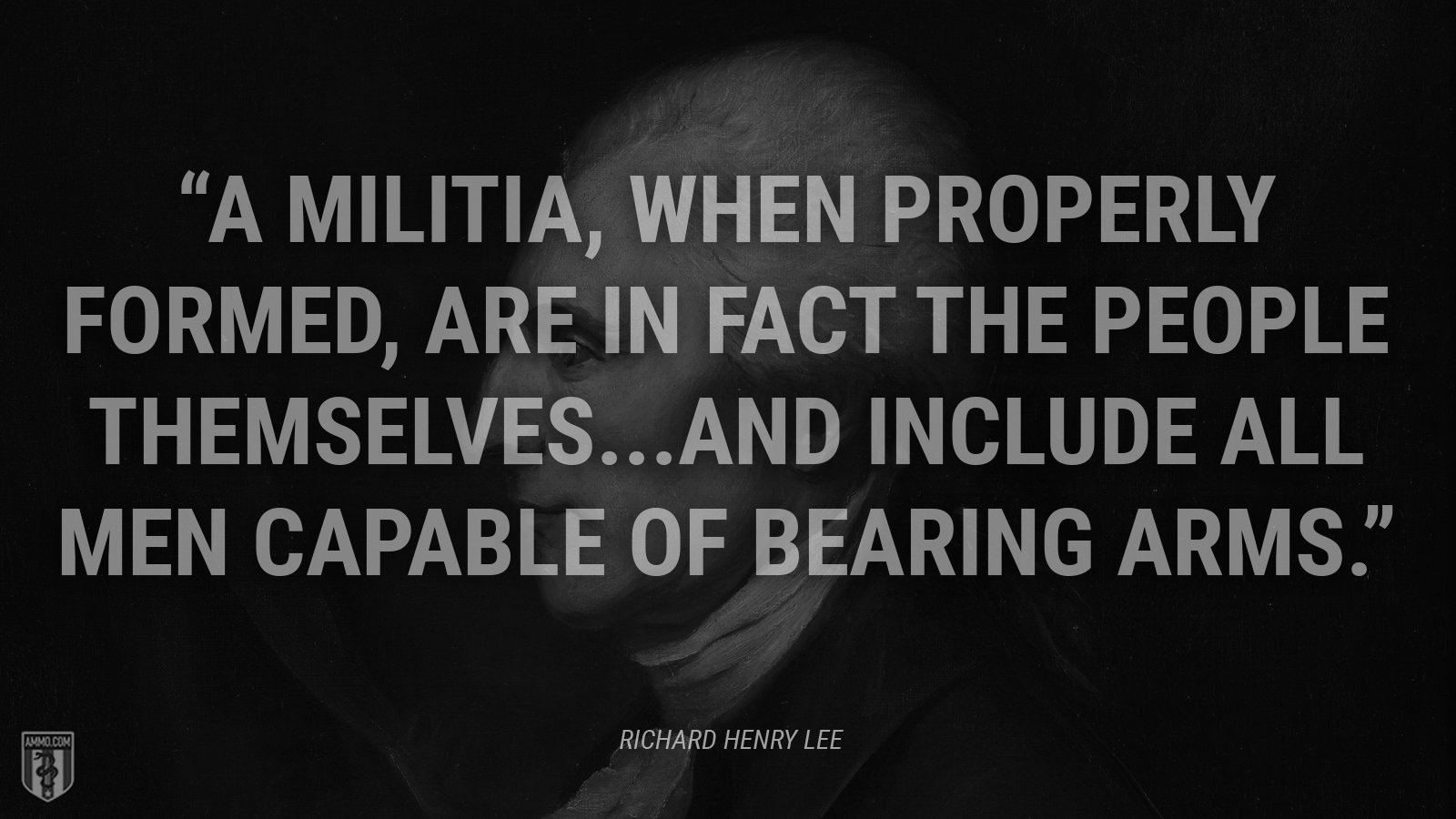
“A militia, when properly formed, are in fact the people themselves. and include all men capable of bearing arms.”
Richard Henry Lee
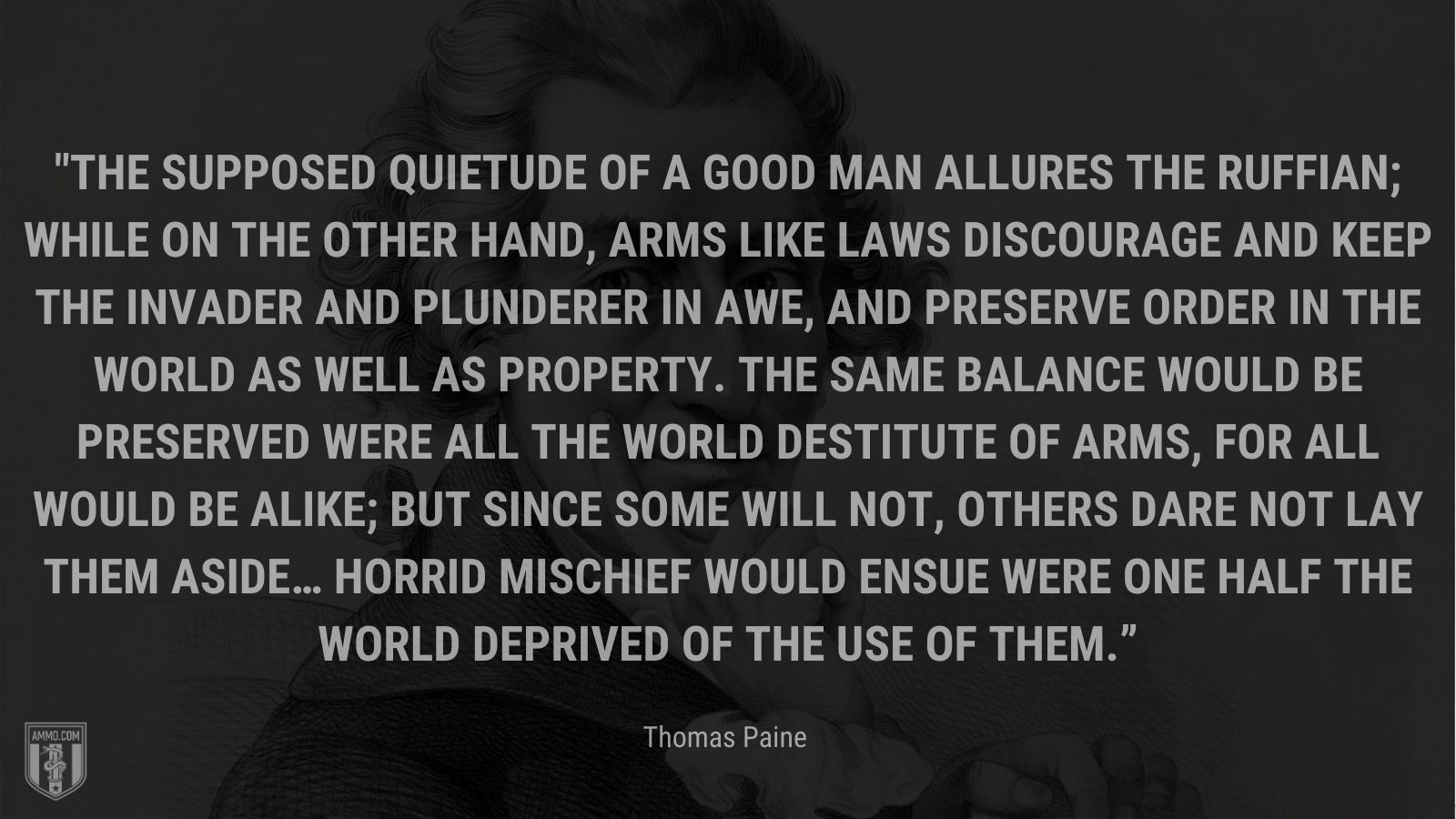
“The supposed quietude of a good man allures the ruffian; while on the other hand, arms like laws discourage and keep the invader and plunderer in awe, and preserve order in the world as well as property. The same balance would be preserved were all the world destitute of arms, for all would be alike; but since some will not, others dare not lay them aside… Horrid mischief would ensue were one half the world deprived of the use of them.”
Thomas Paine, The Writings of Thomas Paine, 1894
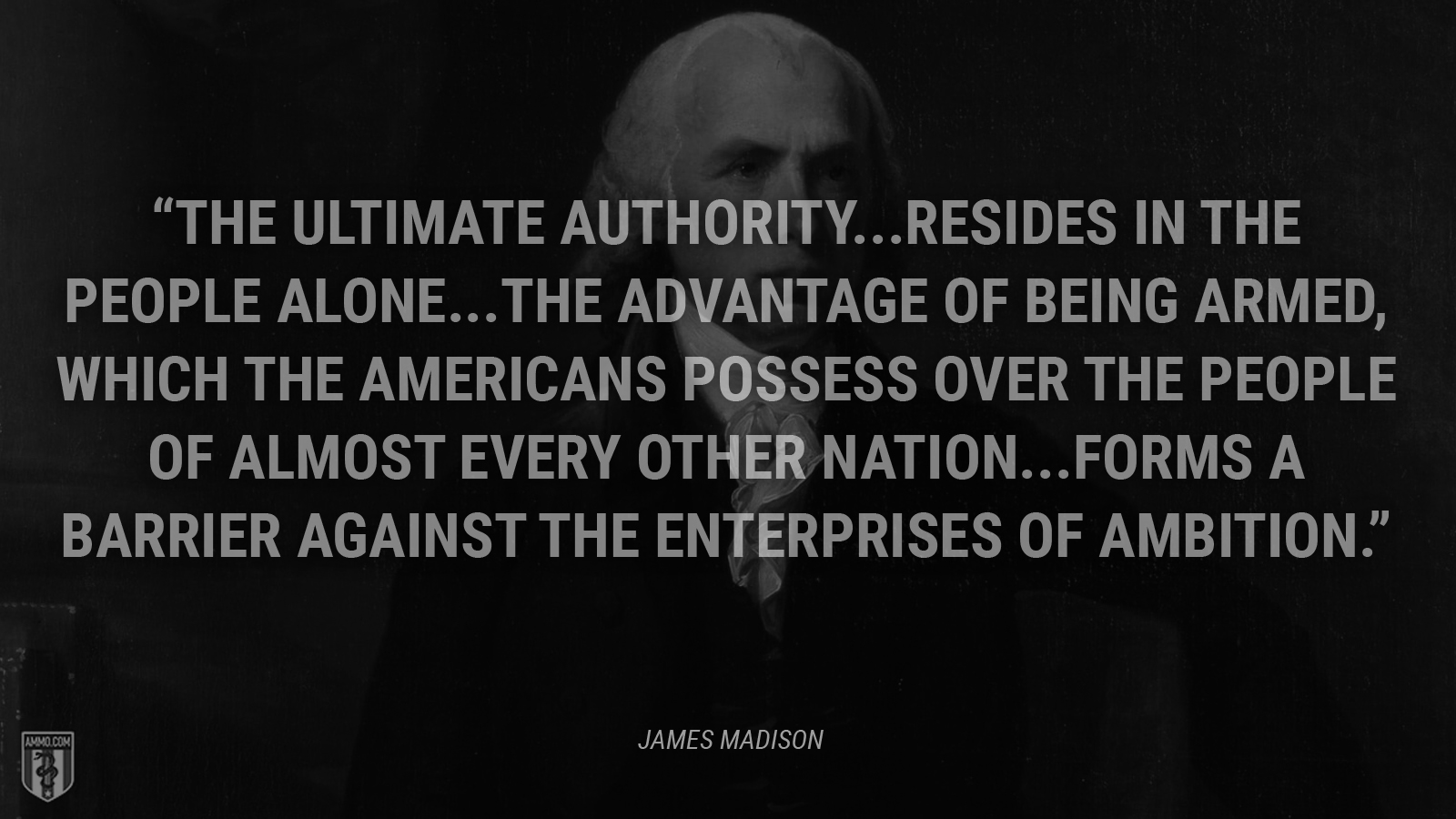
“The ultimate authority. resides in the people alone. The advantage of being armed, which the Americans possess over the people of almost every other nation. forms a barrier against the enterprises of ambition.”
James Madison
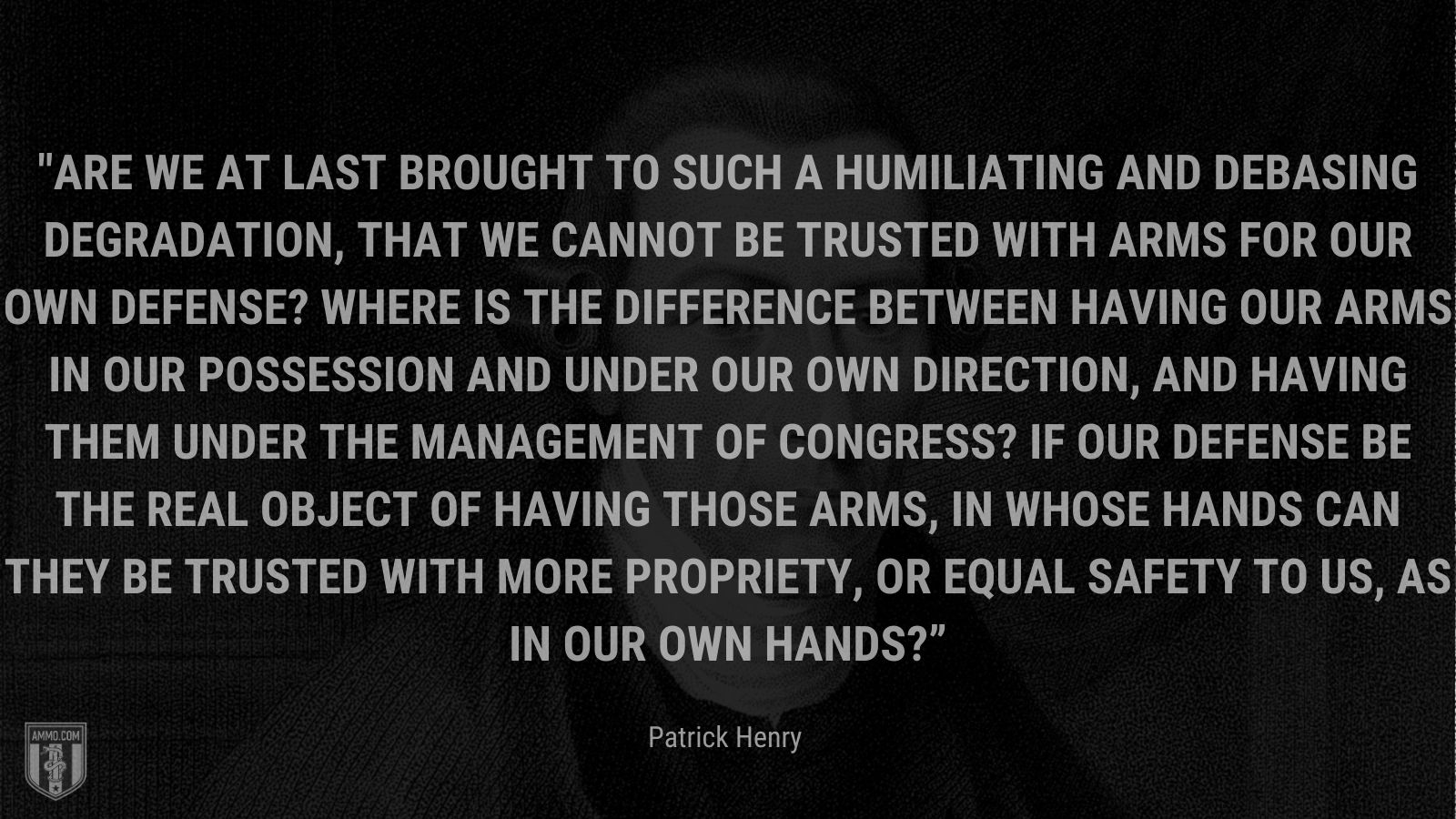
“Are we at last brought to such a humiliating and debasing degradation, that we cannot be trusted with arms for our own defense? Where is the difference between having our arms in our possession and under our own direction, and having them under the management of Congress? If our defense be the real object of having those arms, in whose hands can they be trusted with more propriety, or equal safety to us, as in our own hands?”
Patrick Henry
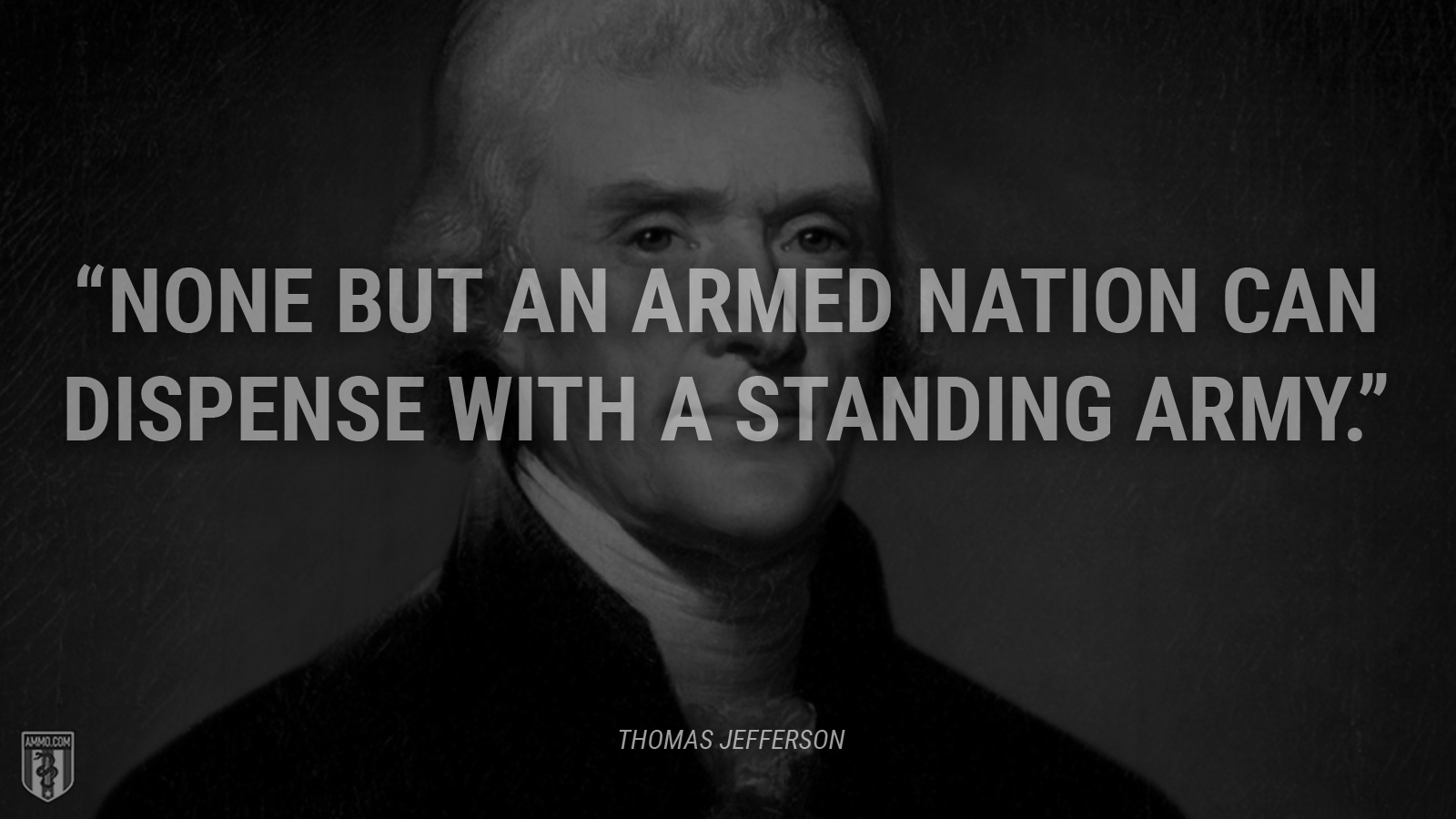
“None but an armed nation can dispense with a standing army.”
Thomas Jefferson, Letter to unknown recipient, February 25, 1803
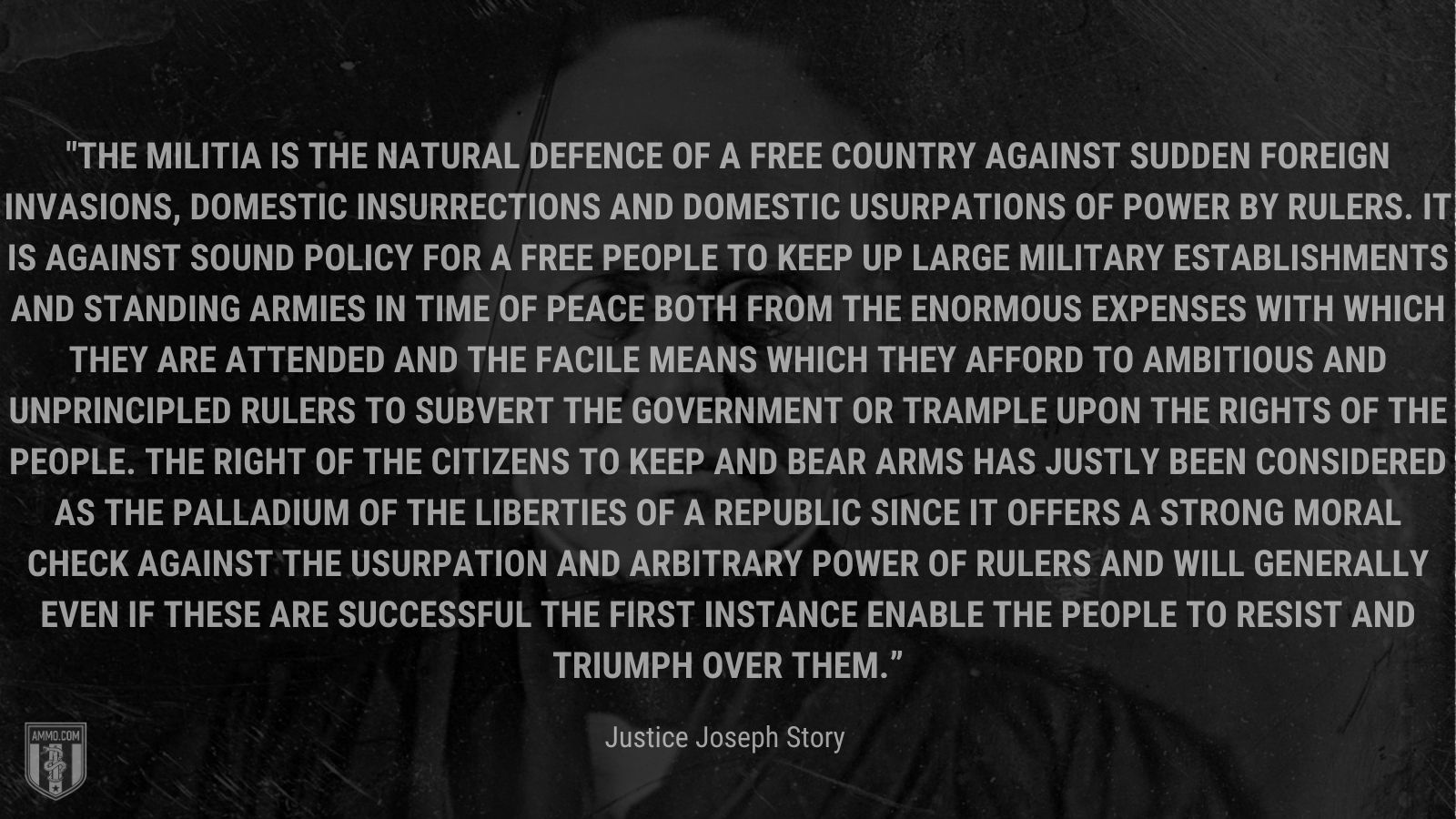
“The militia is the natural defence of a free country against sudden foreign invasions, domestic insurrections and domestic usurpations of power by rulers. It is against sound policy for a free people to keep up large military establishments and standing armies in time of peace both from the enormous expenses with which they are attended and the facile means which they afford to ambitious and unprincipled rulers to subvert the government or trample upon the rights of the people. The right of the citizens to keep and bear arms has justly been considered as the palladium of the liberties of a republic since it offers a strong moral check against the usurpation and arbitrary power of rulers and will generally even if these are successful the first instance enable the people to resist and triumph over them.”
Justice Joseph Story
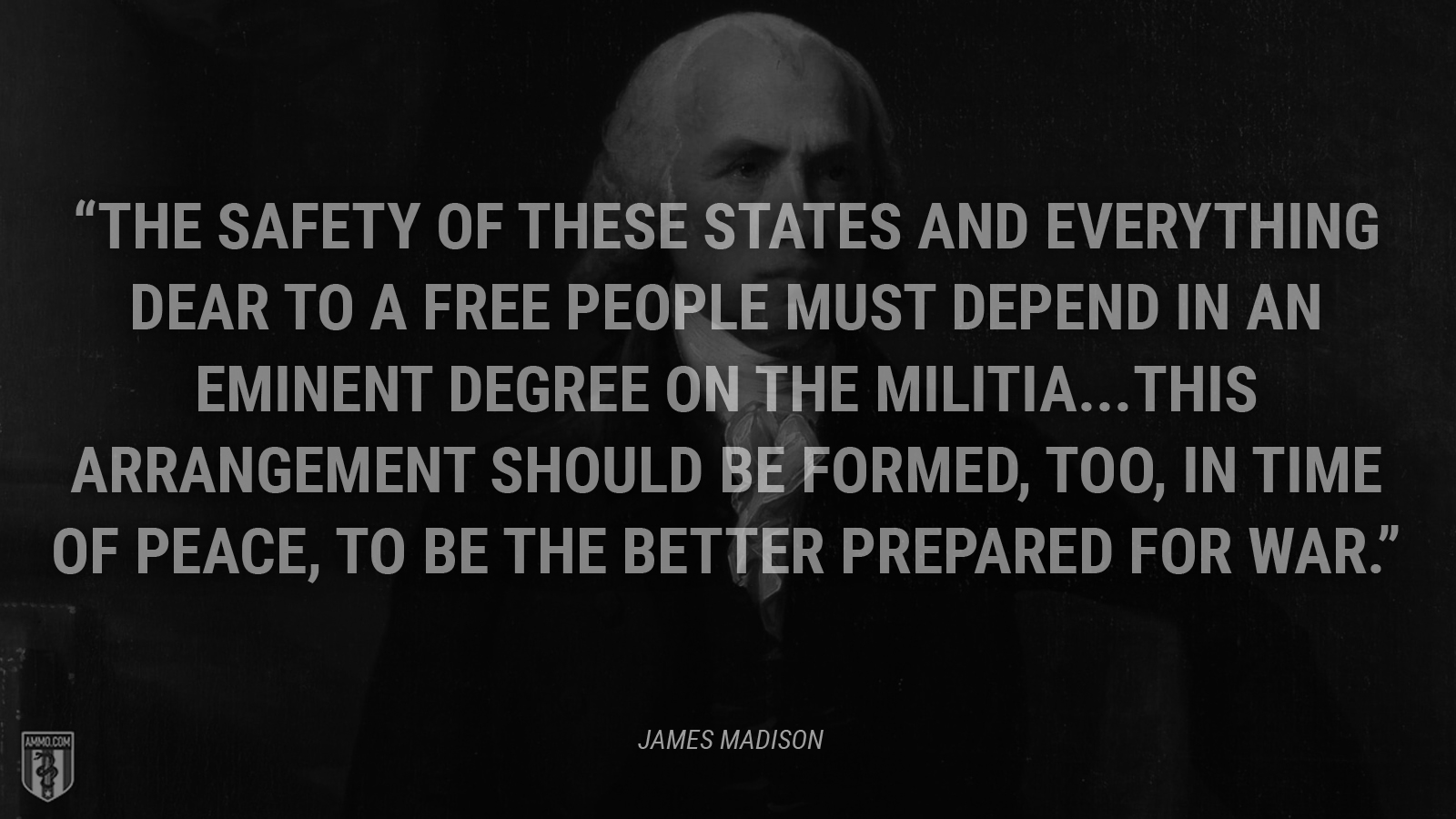
“The safety of these States and everything dear to a free people must depend in an eminent degree on the militia. This arrangement should be formed, too, in time of peace, to be the better prepared for war.”
James Madison, First Inaugural Address, March 4, 1817
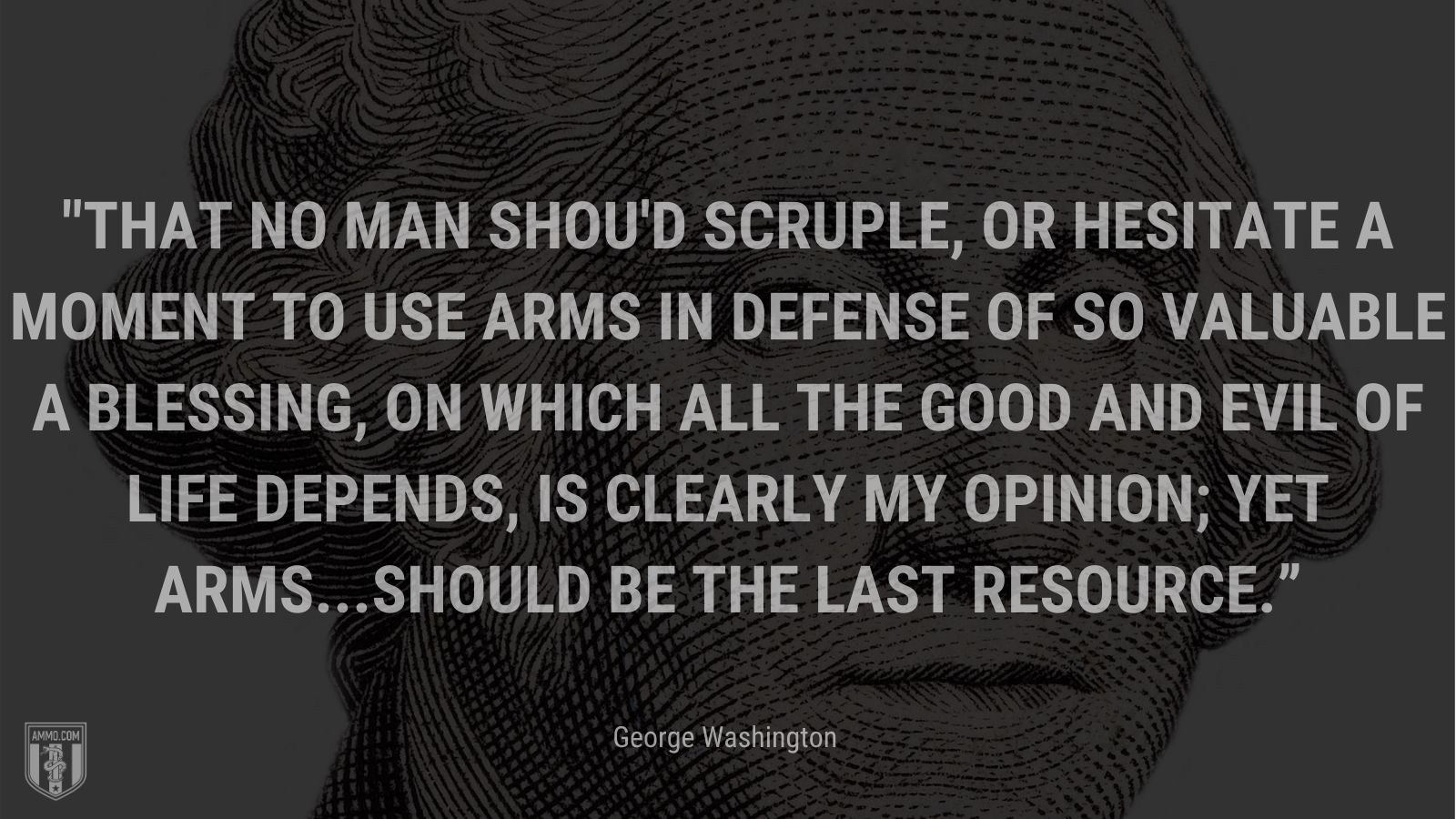
“That no man shou'd scruple, or hesitate a moment to use arms in defense of so valuable a blessing, on which all the good and evil of life depends, is clearly my opinion; yet arms. should be the last resource.”
George Washington, Letter to George Mason, April 5, 1769
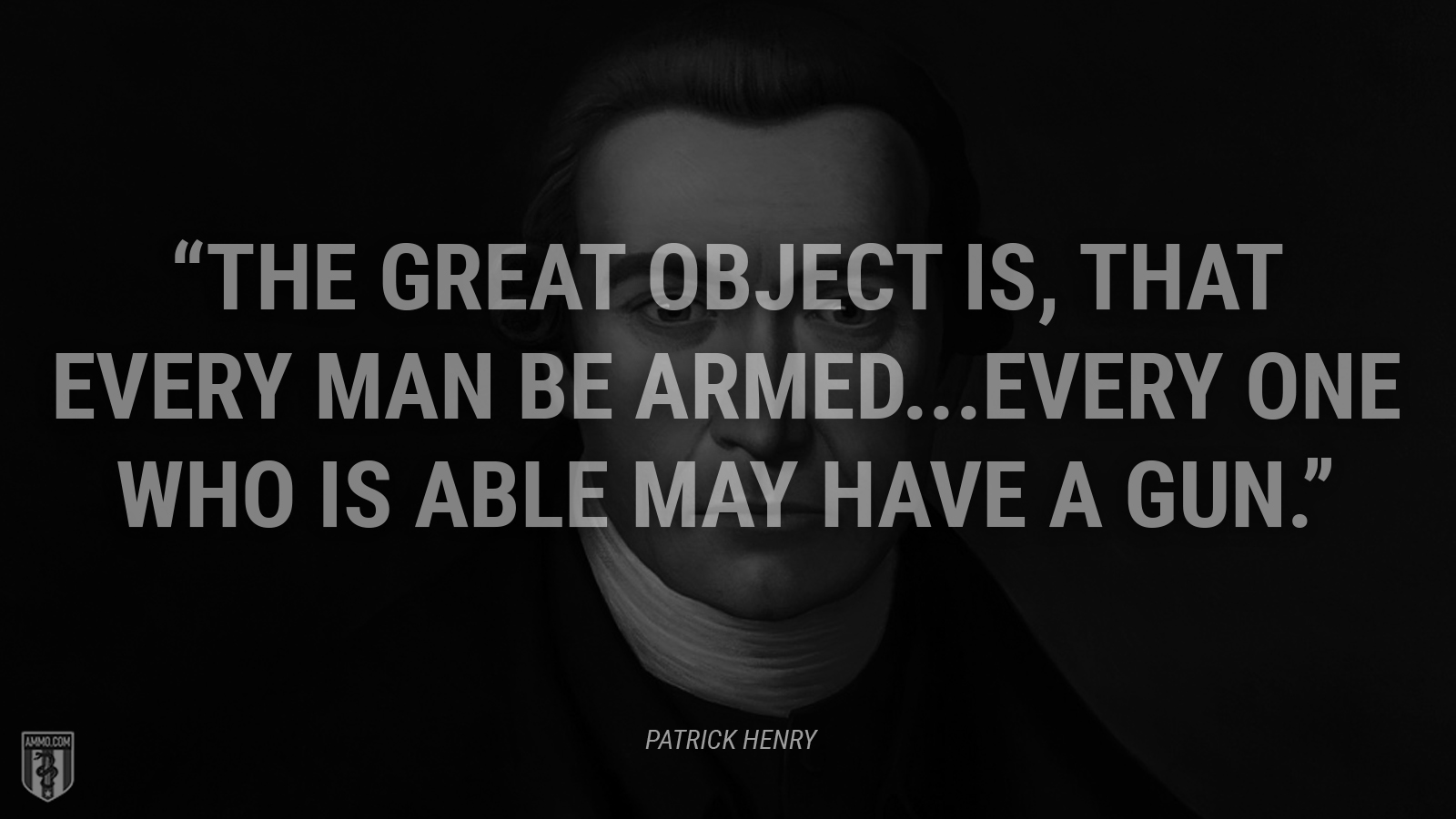
“The great object is, that every man be armed. Every one who is able may have a gun.”
Patrick Henry, Speech of June 14, 1788
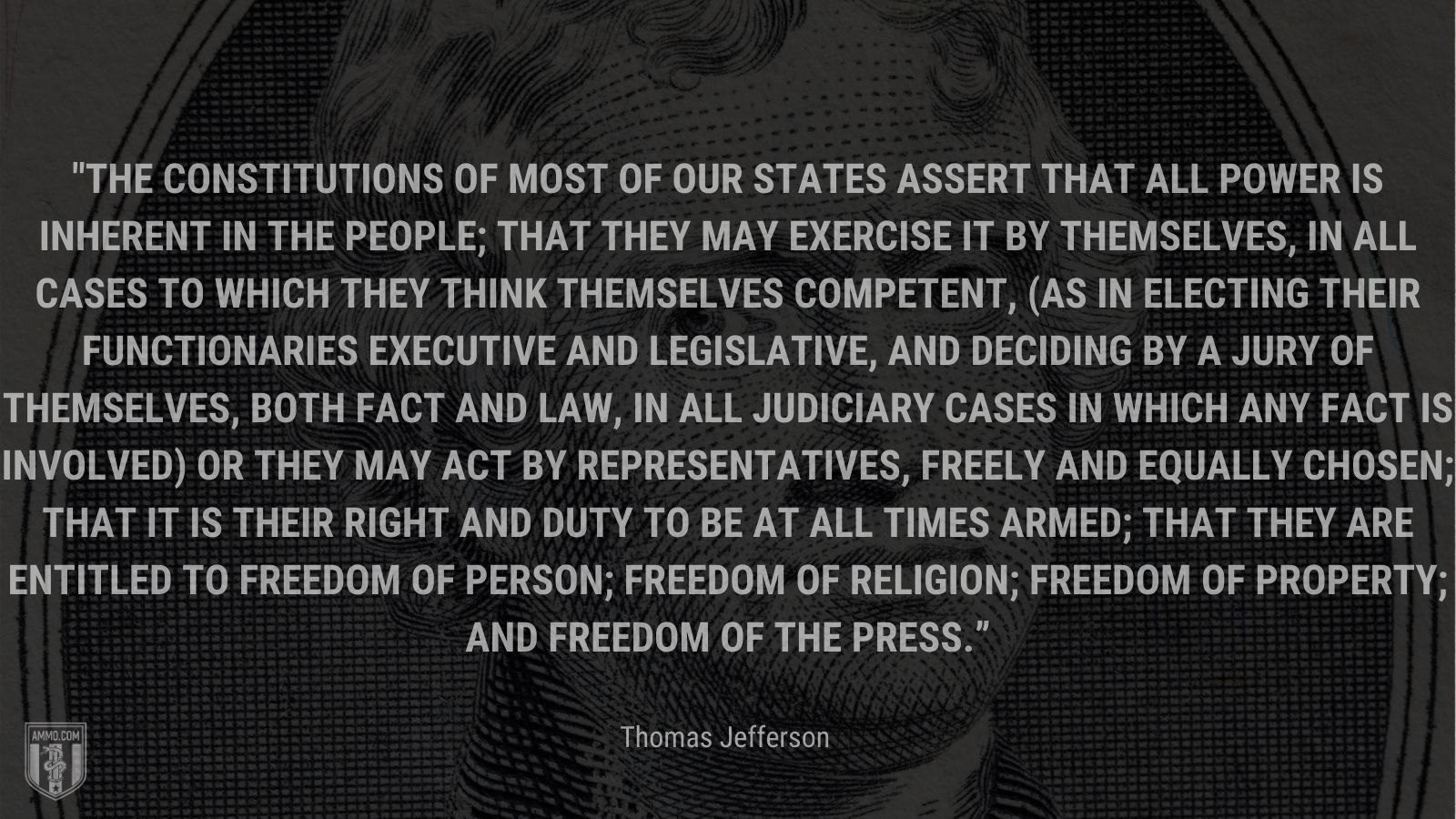
“The Constitutions of most of our states assert that all power is inherent in the people; that they may exercise it by themselves, in all cases to which they think themselves competent, (as in electing their functionaries executive and legislative, and deciding by a jury of themselves, both fact and law, in all judiciary cases in which any fact is involved) or they may act by representatives, freely and equally chosen; that it is their right and duty to be at all times armed; that they are entitled to freedom of person; freedom of religion; freedom of property; and freedom of the press.”
Thomas Jefferson, Letter to John Cartwright, June 5, 1824
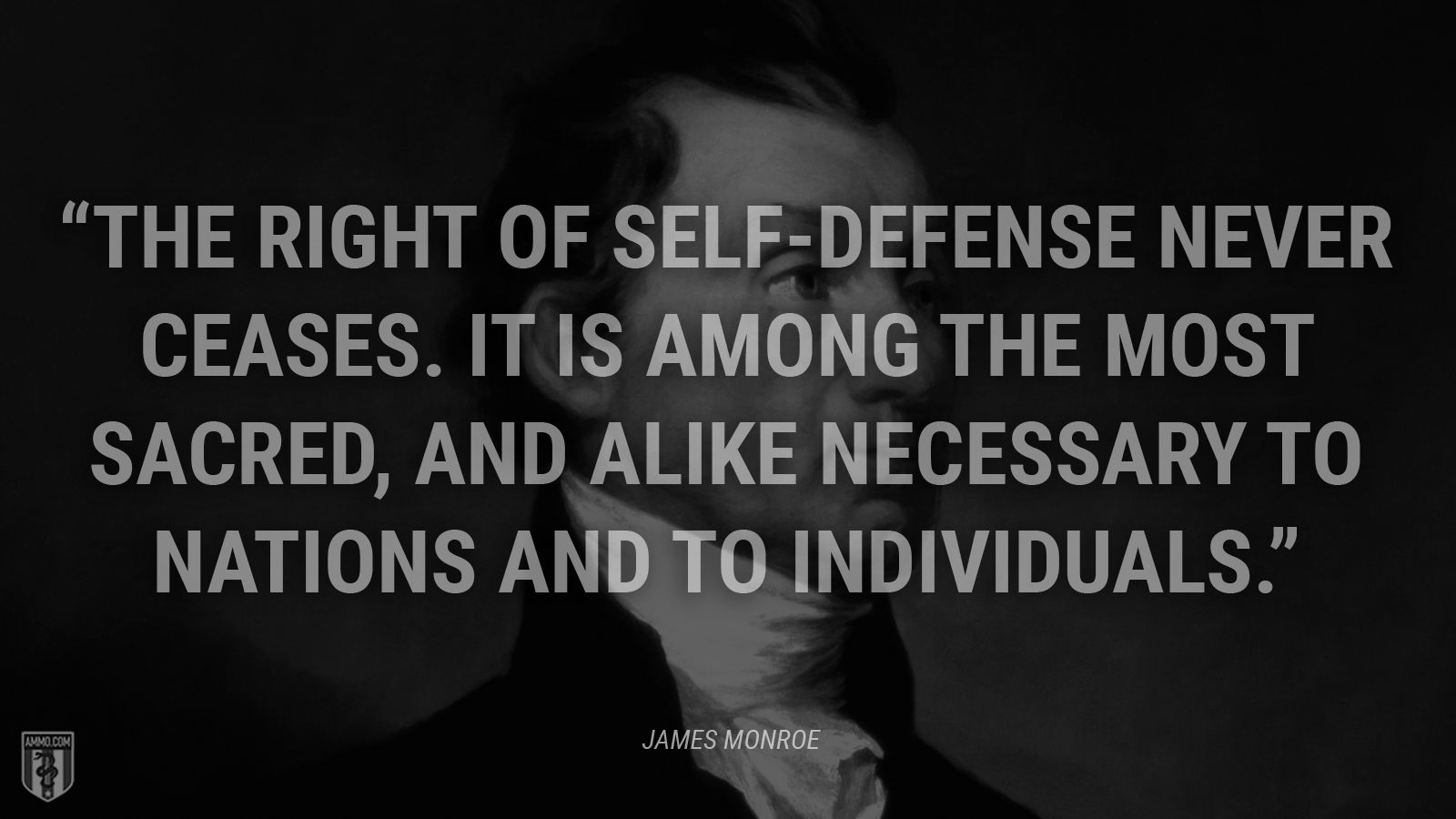
“The right of self-defense never ceases. It is among the most sacred, and alike necessary to nations and to individuals.”
James Monroe, Second annual message to Congress, November 16, 1818
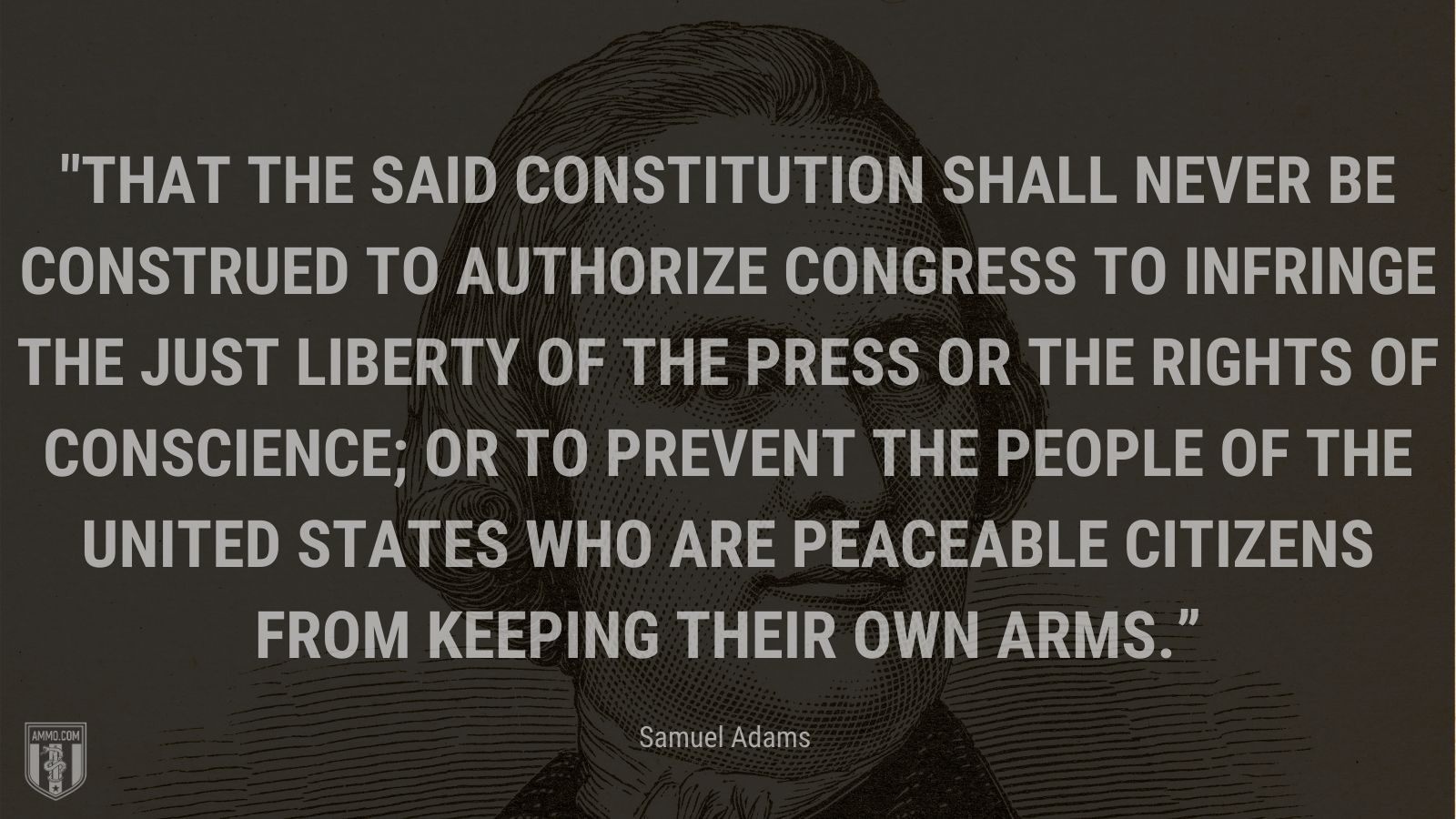
“That the said Constitution shall never be construed to authorize Congress to infringe the just liberty of the press or the rights of conscience; or to prevent the people of the United states who are peaceable citizens from keeping their own arms.”
Samuel Adams, in Phila. Independent Gazetteer, August 20, 1789